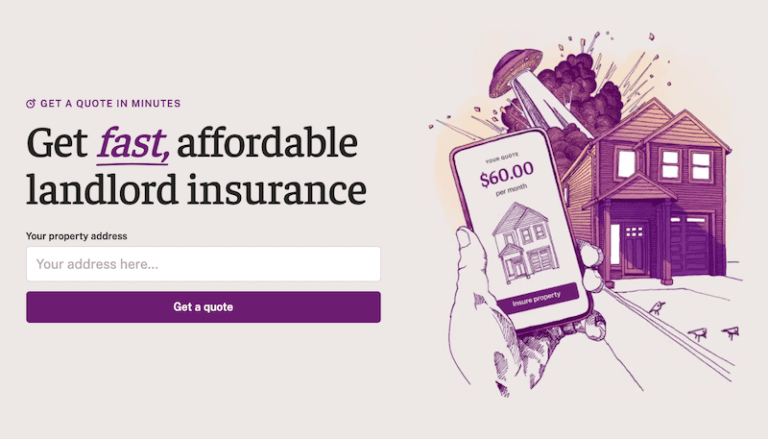How I Raised the Rent on Our Rental Property without Being a Mean Landlord
This past year we lost a long-time tenant. Sad. While we were bummed to lose them. The change allowed us to raise the rent and improve the monthly cash flow.
We increased the rent on our rental property by $300 – from $1,875 to $2,175 per month. That’s quite a jump. But it was necessary to keep up with rising property taxes and the increased demand for the unit. I’m happy to report that we are now collecting that higher rent.
It’s good practice to raise the rent; it allows you to cover your increasing costs, keep up with the market, and allows your tenant to expect regular rent increases.
In this article, I’ll explain why you might want to raise your rent, how much to raise the rent, things you can do to justify raising the rent, and the legality of raising rents on existing tenants.
When You Should Raise the Rent
When was the last time you reviewed comparable rents in your area? You might not be charging enough if you haven’t done it in a while.
It would be best to raise the rent when the local market increases rent prices. You’ll want to keep pace with the rent prices in your community so you’re not losing money.
Not knowing the going rate of rent often holds landlords back from raising the rent. The best way to determine what amount to increase by is to look at comparable rent prices surrounding your rental property.
As a landlord, it’s a mistake not to research and stay current on local rent prices. Understanding your neighborhood’s average rent prices helps you avoid vacancy by charging a fair price for you and your tenants.
Online tools and resources make it quick and easy to find comparable rents. That way, you know if and when you should raise the rent.
Reasons You Might Want to Raise the Rent
Not that you need convincing. Well, maybe you do…
There are many reasons to raise the rent. Not one of which is because you want to be a mean and nasty landlord. Don’t feel guilty. Raising the rent is necessary for several reasons. Let’s break them down:
1. Your Regular Expenses have Gone Up
You definitely need to raise the rent if your regular monthly expenses have gone up. This could be a number of expenses: property taxes (like me in my example), insurance, HOA dues, property management fees, or even the mortgage payment.
2. You’ve Remodeled or Otherwise Improved the Property
Did you spend money remodeling or otherwise improve the property? Or are you planning on making some major improvements? If so, you’ve increased the value of the property and you likely need to raise rent.
Related: Rental Repairs: Fixing Up My Rental Property
3. The Market Supports It
Get a rent estimate and look at the comparable rents. Are you seeing similar units renting for much more? Ask other landlords in the area what they are charging for similar units.
If rents are rising all around you, the market is trying to tell you it’s time to raise your rent.
4. To Ensure Your Tenant Expects It
Here’s a nice tip I picked up from the BiggerPockets forums–at the end of your lease term, always raise the rent by at least $25. Do this even if there is no other reason for you to justify a rent increase.
Why? Simple. So your tenant will come to expect it, and so you will be able to negotiate down from there.
If you don’t make this move first, then you won’t have any wiggle room if your tenant (who you want to keep happy) leads off negotiations by asking you to lower the rent for good behavior. Since you’ve thrown the first punch, you’ve now got some room to pull back once the tenant starts in on trying to negotiate better rent.
No one is going to fret too much over $25–you won’t lose them. And if they balk, have a discussion and negotiate something favorable for both of you.
5. Your Tenant is Leaving
Finally, if your current tenant is breaking the lease, this is the time you must raise the rent. You need to test the market again and start high with your offer. If you end up right back where you were that’s okay. At least you didn’t lose rent. And this is your one and only chance to reset the rent. Go big!
How Much to Raise the Rent
So how much should you raise the rent by? That depends.
You want to make sure you are getting the best value for the property. But you also don’t want to limit the number of prospective tenants. Here are a few factors for you to consider:
1. Research the Comparable Rents
Let the free market be your guide. Search the available online marketplaces like Zillow and Trulia to find similar properties for rent. Ask other landlords in the area. If you use a property management company, they should have access to data that would be useful.
There is also a color-coded map of where you can see how other properties compare to the average, as well. As a property manager, you can quickly gauge how much you could feasibly raise your current rate.
2. Factor in Your Expenses and Expected Return
This should ideally be done before you buy the property. But it’s worth reviewing occasionally to ensure you’re still working with a good real estate investment.
The reason I do an annual analysis of my property (including a detailed listing of all my expenses) is so I’ll know if it’s time to raise rents. And if you’re not getting the return you want on your investment then it’s time to explore a rent increase.
If that’s not successful it may be time to sell the investment or consider a cash-out refinance.
Related: Cash Flow Analysis of Our Rental Property
3. Go Big to Leave Negotiating Room
Once you know your comparable rents and you understand your finances, it’s time to put a number out there and see what the market does with it. You won’t be able to negotiate up so start high so that you have room to work the price down if you have just one prospective tenant who wants a better price.
Like I said above, I raised my rent recently by $300 and the market immediately told me that was a fair price. I rented it out within the week.
Things You Can Do to Justify Raising Your Rent (aka Add Value)
As a landlord, the best kind of rental increase you can hope for is one that’s based on some added value you’ve brought to the arrangement. After all, other increases are typically forced upon you by external factors.
1. Improve/Remodel the Property
Adding some new paint, carpet, and fixtures might just be all you need to justify a decent rent increase. These thing costs less than $1,000 in most properties and can be done quickly in between tenants or possibly even when you have someone in it.
Beyond basic repairs, a bathroom or kitchen remodel can certainly help to improve rents. But don’t make major remodels before you understand your market enough to know how those remodels will have you stacked up against comparable units. It doesn’t necessarily pay to have a bathroom twice as nice as anything in your market.
2. Reconfigure the Property
Can the unit be subdivided into multiple units? Can a portion of the unit be rented out as a temporary rental (i.e. Airbnb)? Can you add an additional bedroom or bathroom?
These questions are, of course, best asked before you purchase a rental property. But it doesn’t hurt to attempt to look at your rental unit from a different perspective once you have it. Always be questioning how you can add value.
3. Add-on Services and Appliances
Offer to take care of cable TV, internet service, landline phone, and other services for your tenant. They might be willing to pay a premium to avoid the hassle of multiple bills. If you have multiple units, you could potentially qualify for a discount.
Additionally, you could lease appliances (washer/dryer, TV, etc.) to your tenant for a small monthly fee.
Is it Legal? Do Rent Control Laws Prevent Me from Raising the Rent?
I reached out to a local lawyer, Robert Newton for comment. He says,
“so long as a landlord follows the Fair Housing laws (non-discrimination of protected classes), then a landlord can raise rent at the end of a lease term. In Texas, there are no state laws concerning rental increase caps, aside from what may exist as a city law or government program.”
Landlordology.com has a great state by state guide on the legality of raising the rent, along with some handy example letters you can send tenants regarding the raise in rent. And if you have questions I’ve not answered, consider Just Answer. You can ask your question and it will be answered by a lawyer.
The bottom line: Raising the rent is just a part of life. Don’t be afraid to do it. And always be looking for ways to make your property more valuable to justify an increase in rent.




![Invest in Real Estate for as Little as $1,000 [RealtyMogul Review]](jpg/realtymogul-review-768x432.jpg)


Great advise for raising the rent in a non-combative way. Especially for those markets that are seeing a surge in property value.